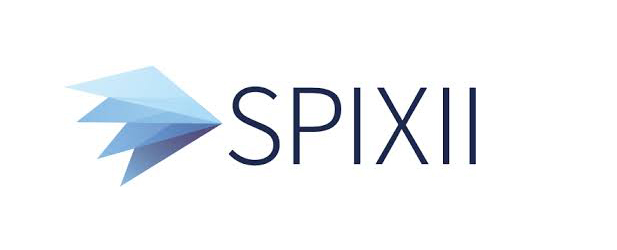
 By
By
We talk to Renaud Million, CEO of SPIXII, for his predictions on how automation will change the future of claiming.
We talk to Renaud Million, CEO of SPIXII, for his predictions on how automation will change the future of claiming. SPIXII is a tech company that works with insurers to develop digital experiences built around the customer. Their first solution is an AI powered chatbot. This can make the claiming process as simple as messaging a friend or family member.
So, first of all, claims can be seen from 2 sides: the side of the insurance policyholder, or that of the insurer. If you’re an insurer, you must ensure all claims are clear and non-fraudulent. You also need an effective “loss ratio” in place. In other words, there must be more money going in through customer premiums than money going out via claims to break even and avoid bankruptcy. Whereas if you’re an insurance policyholder, you’ll be making a personal claim if something happens to you. Let’s say, you’ve had a car accident, and you’re about to have the “moment of truth”.
What’s “the moment of truth”?
This is it: the make-or-break moment. Will your insurance cover the accident? While filing a claim, you’re probably already stressed out, and may not have the necessary documents with you. Plus, many customer service teams have been cut to the bare minimum, which means long waits on hold. The result? Confusion, anger and miscommunication.
Automation can help solve this in three ways.
● First, it can help you in the buying process, simply explaining what your insurance covers, without jargon. This reduces the likelihood of a nasty surprise later on, and battling with an insurance company to receive payment.
● Second, you can file a claim with a chatbot that’s available 24/7, wherever there’s an internet connection. So if you’re stuck in a foreign country without a phone, all you need is a computer connected to the internet to make a claim. This means you no longer have to fork out on expensive overseas phone bills. Meanwhile if this isn’t an issue, SMS-based solutions are also available.
● And third, an automated chatbot can recognise you. This removes the need to have your policy number on-hand, which speeds up the whole process.
We’re already seeing companies like Lemonade use automated technology to approve and provide insurance in 90 seconds. They were the first company to process a claim from start-to-finish with no human interaction, paperwork or form-filling. Meanwhile, Zhong An - China’s first digital insurer - has sold over 5 billion policies, 99% of which have been automated.
Now, almost all of the massive insurance companies are looking to provide their customers with a similar digital experience. So here are Renaud’s predictions for the future of automation.
1)Automation will go hand-in-hand with risk prevention.
In the UK, we’ve seen telematic (or black box) car insurance surge in popularity in the last 5 years. And in countries that have pioneered telematics such as Italy, this process started as long as 15 years ago. However, driven by insurers rather than software or tech companies, it was a slower process than what we’re seeing today.
This monitors users’ driving habits and gives an overall driving score to encourage people to drive safely. The reward? Cheaper premiums - something that’s well suited to young drivers. And for insurers, less severe potential claims. An AI powered chatbot could take this a step further. It can offer friendly ‘nudges’ reminding you to drive safer, by first showing customers data about their driving habits and suggesting how to improve.
This builds the relationship of trust and transparency between the customer and their insurer, while also reducing the risk of an accident.
2) We’ll see automated claims first in the travel insurance industry.
Imagine that - thanks to data - a machine knows in real-time when a claim is going to be made. In connected homes, should a camera see a house get burgled while you’re on holiday, it could process the payment - paper-free - with no interaction between the policyholder and claim support. This would completely transform the claiming experience.
3) Even though automated claims will probably become the norm, they’ll never be fully automated.
“No, I don’t think they’ll ever be fully automated,” says Renaud. “Some claims, like a dent in your car, will be. But for any business-related or infrequent claim, they’ll most likely always be handled by humans”.
“Chatbot technology enhances human intelligence. It doesn’t replace it. So while a chatbot can interact with ten people or ten billion people with no significant additional cost or manpower, it’ll prevent overloading the customer service team with calls. Instead, it enables them to spend more time helping people with complex or sensitive cases. It’s a step towards 100% customer satisfaction.”
“In the future, we might also see chatbots for the customer service team. So not only can you as a customer engage with a chatbot to fill out a claim, the customer service team can use a chatbot for help with their responses.”
Let’s imagine a chatbot uses natural language processing to transcribe your conversation with customer service. By rapidly sorting through massive amounts of data that could take hours for a human to look through, the chatbot could find the relevant answers and give them to the customer service team. This would result in an amazing service, improving the accuracy of answers and overall customer service quality.
A date for your diaries!
Renaud will be speaking about chatbots in our workshop at the Connected Claims Europe Summit this October, showcasing a real demo where they’re implemented and live for insurance companies. Can’t wait that long? Learn more by visiting spixii.ai.
